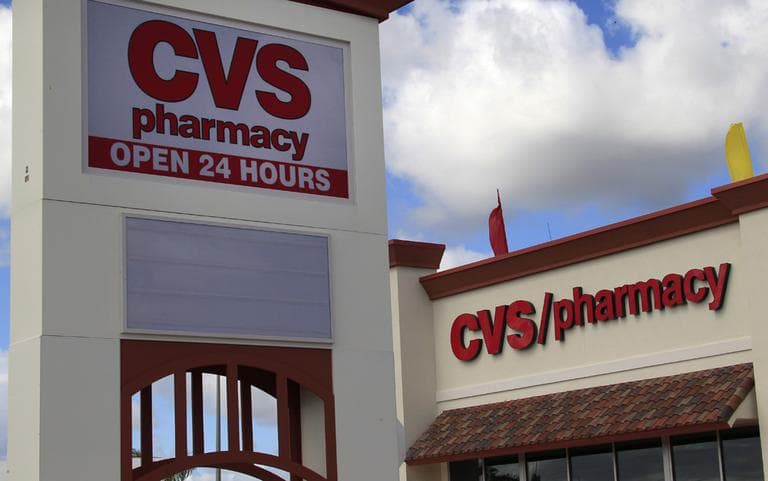Advertisement
To Improve Employee Health, Carrot Or Stick?
Resume
Drugstore giant CVS will require employees with company health insurance to report key health data, including weight, body fat, blood pressure and glucose levels, to a third party - or pay an extra fee.
CVS says it won't look at the information. A CVS spokesman has told reporters that it's just "a health screening and wellness review so that colleagues know their key health metrics in order to take action to improve their overall health, if necessary."
"Recent economic theory has shown most individuals value losses greater than they value gains."
Francois de Brantes
Patient Privacy Rights founder Dr. Deborah Peel calls the move "incredibly coercive" and adds that it will be hard to tell who is looking at the data.
Either way, CVS is joining a growing trend.
The 18th annual Towers Watson Survey on Employee Health Care released this months says two-thirds of all companies offer financial incentives.
The survey found 36 percent of companies reward employees for participating in stop smoking program; 42 percent charge tobacco users about $50 a month; and 16 percent reward or penalize employees based on factors other than tobacco, including weight and cholesterol.
And the numbers are going up.
But the programs are expensive to run, so are they worth it for companies? And which works better, the "carrot" reward-based options, or the punitive "stick"?
Francois de Brantes, executive director of the non-profit Health Care Incentives Improvement Institute, says the vast majority of companies with health incentive programs choose positive incentives instead of penalties - but that might not be the right choice.
"Traditional economics put a large emphasis on the role of incentives. Recent economic theory has shown most individuals value losses greater than they value gains," de Brantes told Here & Now's Robin Young. "The fear of losing $10 is actually perceived as having a higher value - negative value, if you will - than the chance of winning $10. For example, a penalty for smokers has a higher chance of changing behaviors than simply saying, we'll give you more money if you participate in a smoking cessation program."
- ABC News: CVS Pharmacy Wants Workers’ Health Information
- Bloomberg: Cash Incentives Help People Lose Weight, Researchers Find
- New York Times: Incentivize Your Way to Good Health
What do you think of CVS's new requirement that employees submit certain health info to a third party? Tell us on Facebook.
Guest:
- Francois de Brantes, executive director of the non-profit Health Care Incentives Improvement Institute, Inc. (HCI3). He's also co-author of the new book, "The Incentive Cure: Real Relief for Health Care."
This segment aired on March 21, 2013.